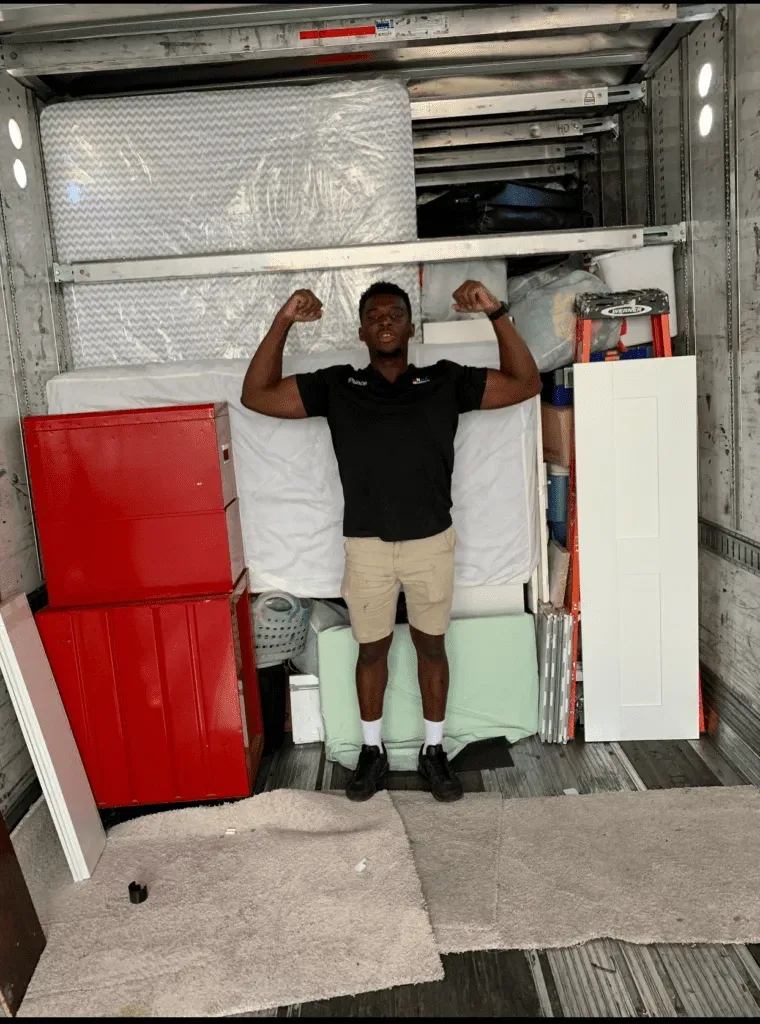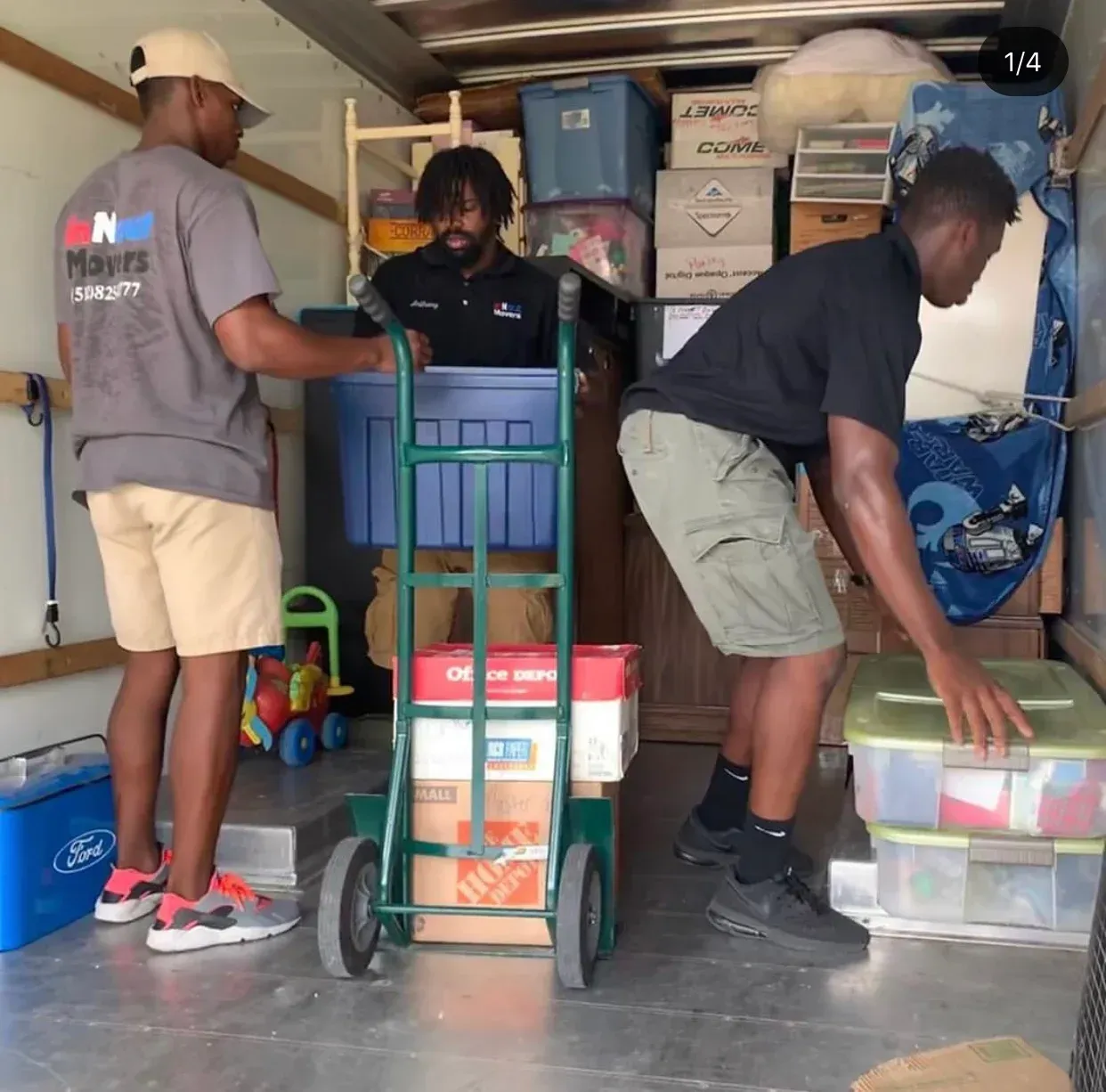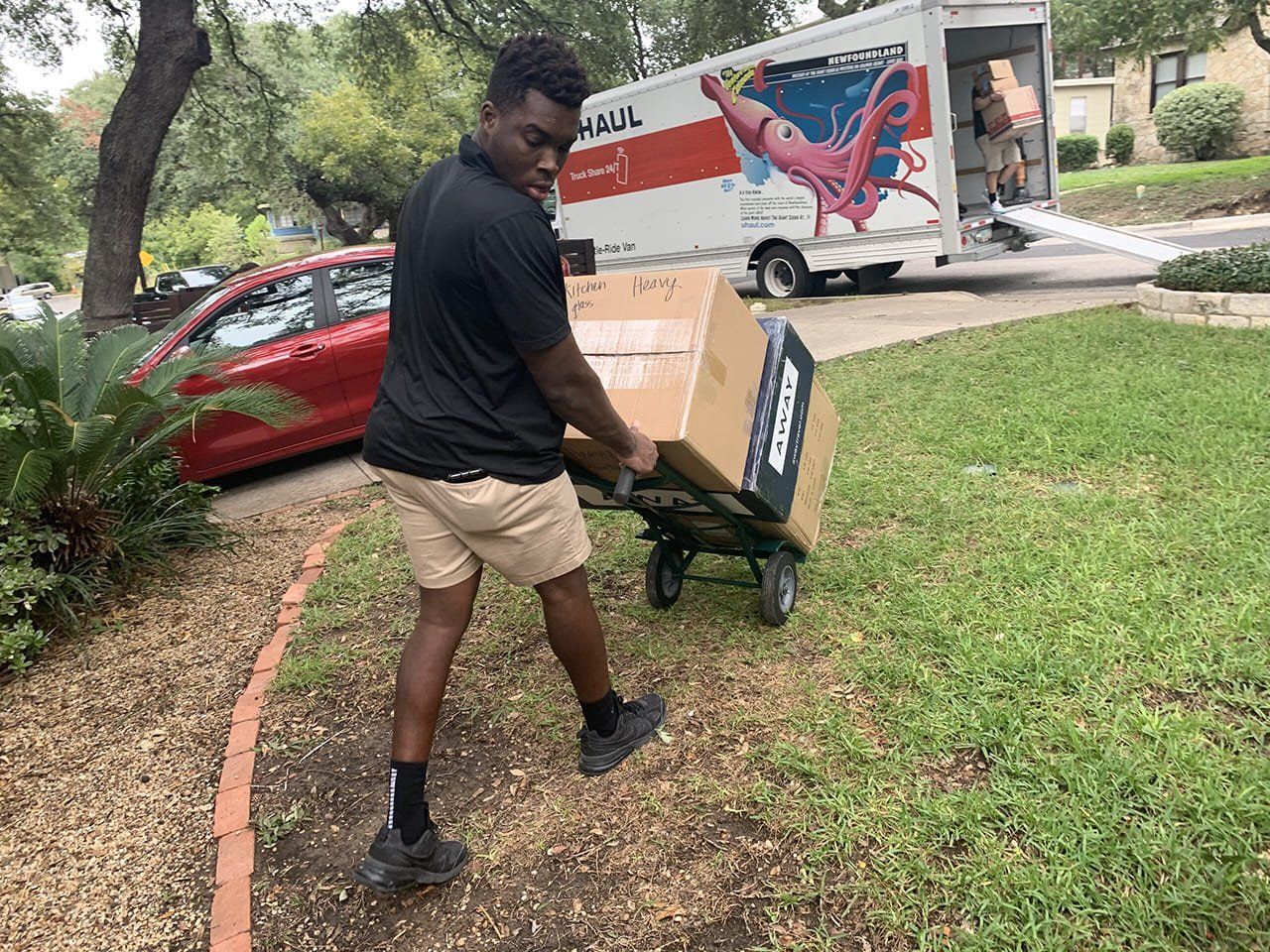How Much To Tip Movers?
Darion Pugh • November 11, 2024
GET A FREE
QUOTE
Contact Us
It’s always a good idea to tip your movers, but how much should you give them? Here are a few things to consider when deciding how much to tip your movers.
It is important to remember that tipping is always optional. If you are unhappy with the service you received, you are under no obligation to tip. That said, most people do choose to tip their movers as a way to say thank you for a job well done.
There is no set amount that you should tip your movers. It is entirely up to you to decide how much you want to give. If you have a particularly large or difficult move, you may want to consider tipping a bit more. Be sure to have cash on hand to tip your movers. Most companies do not accept credit cards for tips, so it is important to plan ahead.

The Different Types Of Moves
Different moves will have different tipping protocols. If you’re moving in town, you may tip a lower percentage than you would for an across-the-state move, simply because an in town move will take less time and effort. If you live in a large or multi-story home, you may want to tip a higher percentage because your movers will have to do more work. Ultimately, it’s up to you to decide how much to tip your movers.
The first thing to consider is the size of your move. If you’re moving a one-bedroom apartment, you probably won’t need to tip as much as someone who’s moving a four-bedroom house. The amount you tip should also be based on the difficulty of the move. If your movers had to move a lot of heavy furniture up a flight of stairs, you should tip them a little more than if they just had to move some boxes around.
Second, think about how long the move took. If your movers were able to get everything done in a timely and efficient manner, you may want to show your appreciation with a larger tip.
When you’re hiring movers, you’ll be given a price quote that includes charges for man hours, gas, transportation, and materials. It’s important to know how much to tip, especially if your move is more expensive than anticipated. However, it’s important to know that a tip is often not included in this estimate. Be sure to ask about their tipping policy before the move. Some companies include gratuity in their price, while others expect their customers to tip their employees.
Keep in mind that movers are typically paid an hourly rate, so if they do a great job of getting your belongings moved quickly and efficiently, they deserve to be rewarded for their hard work. Also, be sure to factor in the cost of any additional services you might have requested, such as disassembling and reassembling furniture, when determining how much to tip. Generally, you should plan on tipping each mover $20-$40, depending on the level of service provided.
When To Tip Your Movers
Tipping your movers is a great way to show your appreciation for their hard work. But how much should you tip them? And when is the best time to do it?

When it comes to tipping movers, it really depends on the situation. If your movers do a great job and are personable and efficient, then you may want to consider giving them a little extra. However, if your movers are slow or break your belongings, then you may want to give them a smaller tip, or no tip at all. Here are a few things to keep in mind when deciding when and how much to tip your movers:
- The quality of the move: Was your move professional and efficient? Did the movers take good care of your belongings? If so, a larger tip is deserved. If your move was less than stellar, a smaller tip (or no tip at all) is warranted. If your movers did a good job and were professional and careful with your belongings, then you may want to consider giving them a tip.
- The size of the move: A larger move will obviously take more time and effort, so a larger tip is appropriate. A smaller move, on the other hand, won’t take as long and won’t be as physically demanding, so a smaller tip is fine.
- Your budget: Don’t spend more than you can afford to on a tip. A good rule of thumb is to tip each mover $20 for a small move, $40 for a medium-sized move, and $60 for a large move.
- The time of day: If your move is taking place during the day when the movers are likely to be working in the heat, a larger tip is appreciated. If your move is taking place in the evening or on a weekend, when the movers are likely to be working fewer hours, a smaller tip is fine.
- The difficulty of the move: If your move involved a lot of stairs or heavy furniture, the movers may have worked a bit harder and deserve a bigger tip. If you have a lot of heavy or bulky items, you may want to consider increasing the tip to show your appreciation for their extra effort.
- Your relationship with the movers: If you’ve used the same moving company for years and have developed a good relationship with the movers, a larger tip is warranted. If you’re using a moving company for the first time, or if you don’t know the movers well, a smaller tip is appropriate.
When it comes to tipping your movers, use your best judgment. A good rule of thumb is to tip 10% of the total cost of the move, but you can adjust the amount up or down based on the factors listed above. And, of course, always tip in cash – it’s the best way to show your appreciation for a job well done.
Consider a few different factors when you tip your movers. If your movers have to handle any oversized or particularly fragile items, it is always a good idea to tip a little extra. The same goes if your movers are personable and kind or if they work quickly. If the movers go above and beyond to help you set up and assemble certain items, a larger tip is also appreciated. However, if your movers show up late or bring the wrong-sized vehicle, you may want to tip a little less. If your movers seem to work deliberately slow, like overwrapping materials or moving inefficiently, you may also want to reduce the size of your tip. Finally, if you have to do the brunt of the work yourself or if your movers mistreat or break your items, it is appropriate to either tip very little or not at all.
Why Should You Tip Movers?
When you’re hiring movers to help you with a big move, it’s important to remember to tip them for their hard work. After all, they’re the ones who are doing all the heavy lifting (literally) to get you settled into your new home.
Tipping your movers shows your appreciation for their hard work. Your movers are working hard to get your belongings from point A to point B, and they deserve to be compensated for their efforts.
2. Tipping your movers is a way to say “thank you.” At the end of the day, your movers are doing you a favor by helping you move. Ideally, you should tip your movers at the end of the move, after all of your belongings have been safely delivered to your new home. If you’re pressed for time or cash, you can also tip your movers at the beginning of the move. This will give them the incentive to work hard and get their move done quickly.
3. They’re doing the heavy lifting. Literally. Your movers are the ones who will be doing all the heavy lifting (and carrying, and stair-climbing) on a moving day. They deserve to be compensated for their physical labor.
4. They’re helping you make a fresh start. A move is a big deal. It’s a chance to start fresh in a new place, and your movers are helping you make that happen. They deserve to be acknowledged for their role in your fresh start.
5. They’re dealing with your stuff. Your stuff is important to you. Your movers are the ones who have to deal with it, so it’s only fair that you show them your appreciation with a tip.
6. They’re providing a service. At the end of the day, your movers are providing a service. They’re helping you make a big transition in your life, and they deserve to be compensated for that.
Quality Moving Services

Quality moving services provide an important service to people who are relocating. They can help make the process of moving much easier and less stressful. These also are factors in determining whether you tip and how much you tip your movers. There are many different types of moving services available, and it is important to choose the right one for your needs.
The first step in choosing a moving service is to decide what type of service you need. Do you need a full-service mover that will pack and load your belongings for you? Or would you prefer a more basic service that will simply transport your belongings to your new home?
1. Local Moving Services: These are perfect for those who are moving within the same city or town. Local moving services will provide you with a truck and driver to transport your belongings to your new home.
2. Long Distance Moving Services: These are ideal for those who are moving to a new state or across the country. Long distance moving services will transport your belongings in a large truck and will typically make multiple stops along the way to your new home.
3. Packing and Unpacking Services: If you don’t have the time or energy to pack up all of your belongings, then consider hiring a packing and unpacking service. They will come in and do all of the work for you so you can focus on other things.
4. Storage Services: If you need to store some of your belongings before or after your move, then consider using a storage service. They will provide you with a safe place to keep your belongings until you are ready to move them into your new home.
5. Furniture Assembly and Disassembly Services: If you have large pieces of furniture that need to be assembled or disassembled, then consider hiring a furniture assembly and disassembly service. They will do all of the work for you so you don’t have to lift a finger.
6. Cleaning Services: If you want your old home to be clean and ready for the new owners, then consider hiring a cleaning service. They will come in and deep clean your entire home so it’s ready for the new occupants.
7. Junk Removal Services: If you have a lot of junk that you need to get rid of before your move, then consider hiring a junk removal service. They will come in and remove all of the unwanted junk from your home so you don’t have to deal with it.
8. Moving Insurance: If you are concerned about your belongings being damaged or lost during your move, then consider purchasing moving insurance. This will protect your belongings in the event that something happens to them during the move.
9. Vehicle Shipping Services: If you need to ship a car or other vehicle to your new home, then consider using a vehicle shipping service. They will transport your vehicle to your new home so you don’t have to drive it yourself.

Once you have decided what type of service you need, you will need to research different companies. You can read online reviews, talk to friends or family who has used a particular company, or contact the Better Business Bureau. It is important to find a company that has a good reputation and that you feel comfortable with.
Once you have found a few companies that you are interested in, you will need to get quotes. Be sure to get quotes from each company for the same services so that you can compare prices.
When you are ready to hire a moving company, be sure to sign a contract. This contract should spell out all of the services that the company will provide, as well as the price. Be sure to read the contract carefully before signing it. The contract will generally tell you if gratuity is included in the final bill.
Good And Bad Movers
When it comes to finding a mover, there are good ones and bad ones. How do you know which is which? Here are some things to look for when choosing a mover:
A good mover will be honest with you about their rates and services. They will give you a written estimate that includes all charges. A bad mover will give you a low estimate to get your business, but then add on hidden charges later. A good mover will be insured and licensed. They will have insurance to cover any damage that may occur during the move. A bad mover may not be insured, which means that you could be held liable for any damages that occur.
A good mover will take good care of your belongings. They will wrap furniture and protect fragile items. A bad mover may not take the same care with your belongings. They may not wrap furniture or protect fragile items, which could result in damage. A good mover will be professional and courteous. They will answer any questions you have and make sure you are satisfied with the move. A bad mover may not be as professional or courteous. They may not answer your questions or make sure you are satisfied with the move. When choosing a mover, it is important to research them to make sure they are a good fit for you. Moving is a big decision, and you want to make sure you are working with a reputable company. When you work with a good mover, you’ll be more inclined to leave a tip.

In general, you should tip your movers when they have completed the job to your satisfaction. If they have done a great job, a larger tip is always appreciated. However, if they have done a poor job, you may want to either decrease the tip or not tip them at all. If your movers were late, rude, used profanity, took too many cigarette breaks, or left scratches and scuffs, you don’t have to tip them. If you’re not happy with the job your moving company or mover is doing, the best thing to do is talk to the team lead. If they can’t or won’t help, reach out to the moving company’s office or moving coordinator to try and rectify the situation.
As well as considering when and how much to tip your movers, there are a few other things to keep in mind.
Firstly, make sure that you have everything you need to tip them before the move starts. This includes cash or a cheque (if you’re adding it to the bill), as well as a pen and paper to write down their names. Secondly, it’s always a good idea to have a few snacks and drinks on hand for the movers. They will appreciate it, especially if they’re working in the heat, and it will help to keep their energy levels up. Finally, remember that the movers are there to help you and make your move as stress-free as possible. So, if they go above and beyond to help you out, make sure you show your appreciation with a generous tip.
One Mover Was Awful While The Other Was Great
Keep in mind that you don’t need to tip each mover the same amount. If one mover worked harder or did a better job than the others, you may want to give them a larger tip. You can also divide your tips among the crew based on how many hours each mover worked.
If you had a positive experience with one mover and a negative experience with another, the best practice is to reward the good worker with a tip and to let the owner know about the bad experience. This way, the hard worker isn’t punished for the other guy’s mistakes.
Providing Food For Movers
If you’re hiring movers to help you with your move, you may be wondering if you should provide food for them. After all, they are working hard to help you get settled into your new home. The answer to this question is that it depends. Some movers may appreciate having a meal provided for them, while others may not want to stop to eat and would prefer to grab something on their own. If you’re not sure what your movers would prefer, you can ask them in advance.
It’s always a nice gesture to provide food for the people who are helping you move, but it’s not required. If you’re on a tight budget or are simply short on time, there’s no need to feel guilty about not offering snacks or drinks to your movers. However, if you do have the means to do so, providing food is a great way to show your appreciation for your movers’ hard work. There are a few things to keep in mind if you decide to provide food for your movers.
First, it’s important to make sure that the food is non-perishable and easy to transport. Finger foods and snacks are ideal, as they won’t need to be reheated or refrigerated. You should also avoid anything that’s messy or difficult to eat, as your movers will likely be eating on the go. In terms of timing, it’s best to provide food towards the beginning or end of the move, rather than during the middle. This will give your movers a chance to refuel without taking away from their work time. And finally, be sure to have plenty of water on hand, as moving is physically demanding and can be dehydrating.
InNout Movers: Your Texas Relocation Experts




